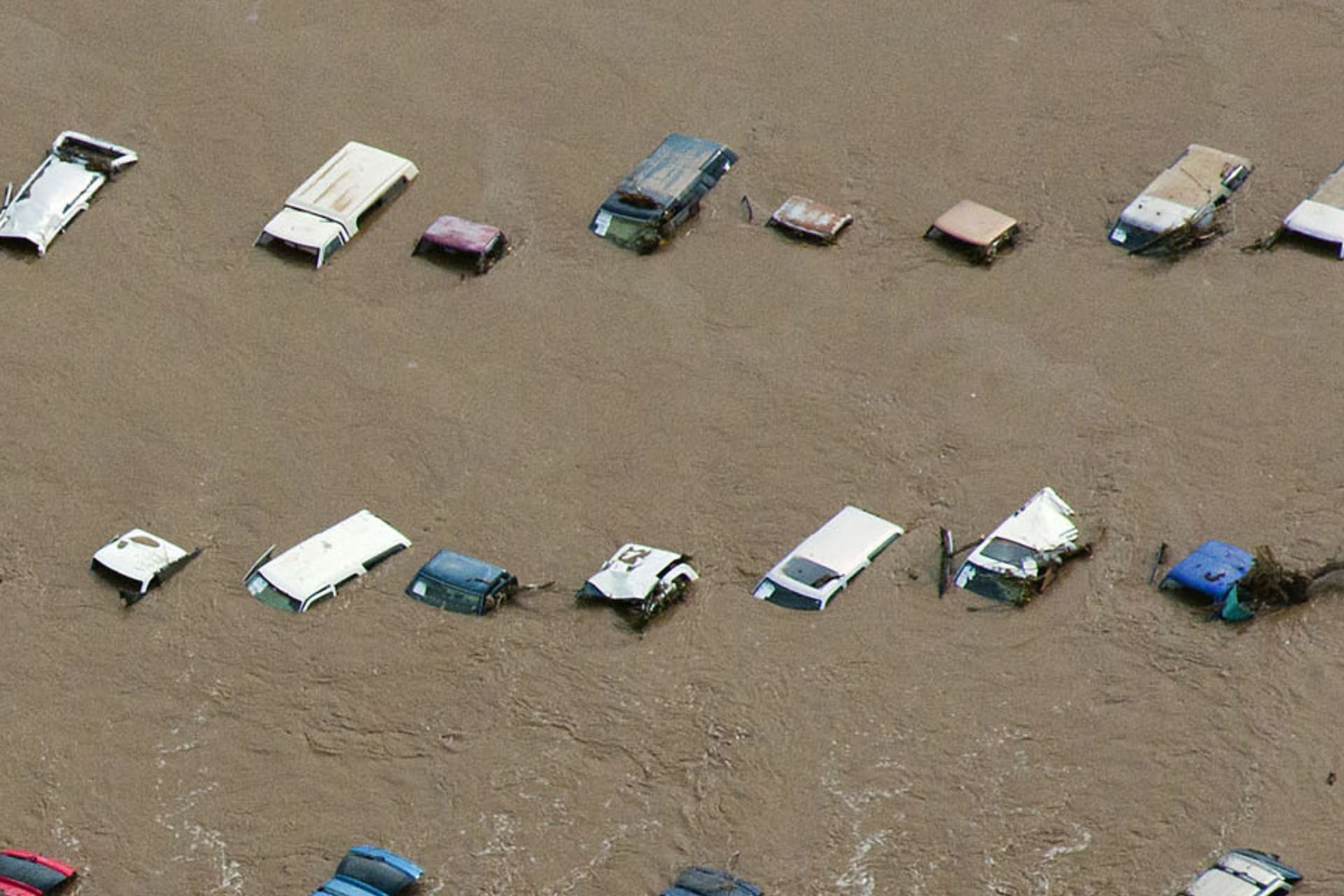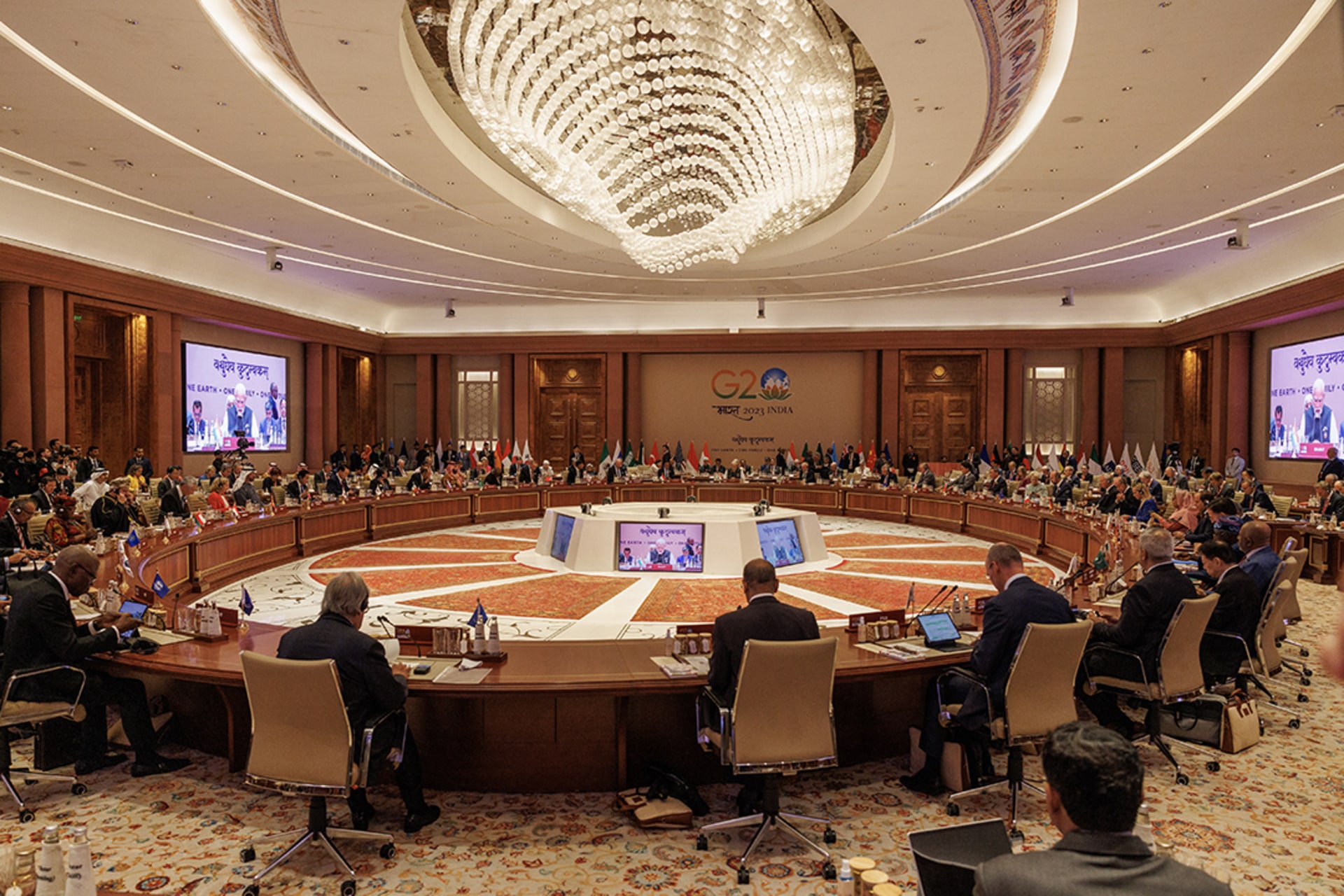Iran’s Involvement in Iraq
Published
Updated
Iran’s influence in Iraq is the subject of enormous speculation. The United States is taking steps to counter that influence.
This publication is now archived.
Introduction
The United States frequently expresses concern about Iran’s involvement in Iraq, and analysts note that the Shiite-led country is filled with figures, including Prime Minister Nouri al-Maliki, who spent time during Saddam Hussein’s tenure exiled in Iran. Some even fought in Iranian-armed military units against Iraqi forces during the long, bloody Iran-Iraq War. But the United States has worried less about such political ties and more about evidence of tactical support being supplied by Iran to the Iraqi Shiite insurgency. Last year, President Bush said the United States had evidence of Tehran supplying “material support,” including mortars and elements of sophisticated roadside bombs, to insurgents in Iraq who in turn target and kill U.S. forces. Bush promised to respond firmly if Iran extended its influence in Iraq and vowed to “seek out and destroy” weapons-supply networks used by Iranian agents. Some say the standoff with Iran reflects the White House’s desire to project a position of strength and send a message to Tehran not to meddle in Iraqi affairs. Others say the gestures aimed at Iran may portend a military clash ahead, though such fears have subsided somewhat since the release of a U.S. intelligence report on Iran’s nuclear program.
What is Iran’s involvement in Iraq?
Enormous controversy swirls around this issue, and much of the evidence the United States cites as proof of Iranian involvement remains secret and in some cases is disputed by the Iraqi government, too. This has created an uncomfortable analogy to the period before the Iraq invasion, when secret intelligence ultimately discredited pushed the United States toward war.
Nonetheless, the United States alleges Iran is involved in Iraq on a number of fronts:
Military. The Quds Force, a special operations wing of Iran’s Revolutionary Guard Corps, is accused by U.S. officials of furnishing Shiite militias (USA Today) with explosively formed penetrators (EFPs), or roadside bombs, as well as rocket-propelled grenades and Katyusha rockets. Specifically, the United States alleges that it supports, trains, and finances militias like the Badr Brigade, the armed wing of one of Iraq’s most religious Shiite parties whose base is in southern Iraq. “The Quds Force is to the Shiite militias as al-Qaeda in Iraq is to the Sunni insurgent groups,” writes Rick Francona, a retired military intelligence official and former U.S. Air Force lieutenant colonel, on MSNBC.com. Some experts estimate as many as thirty-thousand Iranian operatives may be in Iraq. In October 2007 the U.S. State Department designated the Revolutionary Guard and the Quds Force supporters of terrorism, and imposed sweeping economic sanctions on both.
Religious. Iran has sent more than two thousand religious students and scholars to the holy cities of Najaf and Karbala. One-third of them belong to Iranian intelligence (PDF) and some are operatives sent to Shiite shrines to influence voters ahead of elections, writes Mounir Elkhamri, a military analyst for the Foreign Military Studies Office at Fort Leavenworth, Kansas. There is also a booming cross-border religious tourism business. Tens of thousands of Iranians and Iraqis cross borders to visit holy sites each year; Iran is even building an airport in Najaf to facilitate this exchange of religious visitors.
Economic. Iran has emerged as one of Iraq’s largest trading partners, with Iranian exports to Iraq topping $1.8 billion (PDF) in 2006, according to the Iranian Custom Administration, up from $800 million in 2004. A free-trade zone in southern Iraq has brought a surge of Iranian goods into shops in Basra, including kerosene and cooking gas. Anoushiravan Ehteshami, a professor of international relations at Britain’s University of Durham, says southern Iraq is the only place outside of Iran where Iranian currency—the rial—is used. “That demonstrates Tehran’s economic influence on its neighbor,” Ehteshami told Radio Free Europe/Radio Liberty. Iran is constructing a highway to link Basra with Iranian commercial centers across the border. Tehran also plans to build a branch of its national bank in Baghdad and provide assistance for Iraq’s economic reconstruction, according to Hassan Kazemi-Qomi, Iran’s ambassador to Iraq.
Social. Many powerful Shiite political parties made Iran their home base during the reign of Saddam Hussein’s Sunni Baath Party. One of the most prominent was Abdul Aziz al-Hakim, head of Iraq’s largest Shiite political party and commander of the Badr Brigade, its military wing. After a brief uprising by Iraq’s Shiites in the southern port city of Basra in 1991, the group returned to Iran and competed for influence with other exiles. When Saddam was ousted in 2003, Iraqi Shiites returned, followed by Iranian leaders seeking to cement ties (PDF) with a new era of Iraqi politicians. Those relationships continue to dominate Iraqi politics in Baghdad.
Are there signs of intensified Iranian interference in Iraq?
U.S. officials insist that Iranian involvement in Iraq, particularly the arming and training of Shiite militants, increased in early 2008 (ChiTrib). But many experts, including Joost Hiltermann, Middle East deputy program director of the International Crisis Group, say Iranian activity in Iraq is not a new phenomenon. Tehran, for example, has had intelligence operatives in northern Iraq for the past two decades, including base offices in Irbil and Sulaymaniya, and enjoys close ties with Kurdish leaders. Iran’s most recent alleged transgressions—support for Iraq’s Shiite militias—stretches back to at least 2004, experts say. Lawrence J. Korb of the Center for American Progress believes the Bush administration is pushing a strategy to get more aggressive on Tehran. “This is not about Iraq,” he says. “It’s about Iran.”
What are Iran’s motivations in Iraq?
To create a security buffer zone. “Iraq is considered to be the first line of defense (PDF) for Iran against any foreign invasion, especially since Iraq has been the invasion route for military attacks on Iran in the past,” writes Elkhamri. Tehran wants to establish good relations with its one-time enemy, keep the government in Baghdad weak, and prevent a Saddam-like strongman from seizing power. “They were attacked by Iraq and gassed by Saddam’s forces for five years,” Hiltermann says. “They have no interest in this happening again.”
To strengthen Iraq-Iran relations. Iran has longstanding ethnic, religious, and political ties to Iraq. Iraq’s leading religious authority, Grand Ayatollah Ali al-Sistani, is a native of Iran. Tehran also enjoys close ties to the Iraqi Shiite leadership, many of whom were exiled to Iran during the Saddam era, as noted above.
To curtail U.S. influence in the region. Iran’s mullahs do not want to see democratization spread across the region or a U.S.-backed client state to emerge on their western border, experts say. Nor does Tehran seek a failed state. Some have called Iran’s policy one of “managed chaos”—enough instability to eject U.S. forces from Iraq but not enough to engulf Iraq’s neighbors in a wider sectarian war. Michael Eisenstadt of the Washington Institute for Near East Policy says of such a policy: “To a degree, this keeps [U.S. forces] tied down and not available for use in Iran.”
Is Iran’s involvement in Iraq impeding U.S. progress there?
To some degree, experts say. The Bush administration accuses Iran of abetting various groups in Iraq that carry out terrorist attacks against U.S. forces. “Parts of the Iranian government are engaged in activities that have the end result of posing a threat” to U.S. forces, says State Department Spokesman Sean McCormack. Others say Iran provides a useful scapegoat, or distraction, for the Bush administration. “If Iran were to go away today, the situation in Iraq would not change dramatically,” says Korb.
Are Iranians abetting the Iraqi insurgency?
Iranian influence is most prevalent in Baghdad, the Kurdish areas of the north, and Shiite areas in the south. Further, Iranian agents appear to be supplying technical, financial, and material support for Shiite militias, and not Sunni insurgents. If anything, experts say, Iran is abetting political parties and their offshoot militias—groups like the Supreme Council for Islamic Revolution in Iraq (SCIRI)—which is nominally aligned with the United States. However, Kenneth M. Pollack of the Brookings Institution tells CFR.org it is possible that Iranian-supplied arms may get sold on the black market and end up in the hands of Islamist extremists or Iraqi insurgents. Many of the car bombs used in Iraq bear traces of previous explosives used by Hezbollah, which were made in Iran.
How have U.S. forces counteracted Iranian influence in Iraq?
The White House has sought to limit Iran’s interference in Iraq’s political and military situation but has not sought to disrupt the two countries’ economic ties. U.S. forces have received authorization to capture or kill Iranian operatives based in Iraq. Juan Cole of the University of Michigan warns in Salon.com this measure “raises the risk of open warfare,” given the large presence of Iranian pilgrims in Iraq who may accidentally be ensnared by U.S. forces. U.S. troops have also raided an Iranian consulate in northern Iraq, detained a number of Iranian operatives, and seized a trove of documents. The U.S. Air Force has also intensified its patrols of the Iran-Iraq border. President Bush, in a January 2007 interview with NPR, warned the United States would “respond firmly” if Iran continued to endanger U.S. personnel in Iraq, but Defense Secretary Robert M. Gates told reporters he felt the standoff with Iran could still be solved “diplomatically.” Making good on such promises, the U.S. military in November 2007 released nine detainees originally thought to be Quds Force members. The move followed a pledge by Tehran that it would stop arming, funding, and training extremists in Iraq, according to the Washington Post.
How solid is the U.S. evidence on Iran’s involvement in Iraq?
U.S. officials have said they can trace serial numbers on mortars, rocket-propelled grenades, and EFPs to sources across the border, but have resisted blaming the Iranian leadership. “We don’t assess necessarily that the central government of Iran is behind this but we are certain there are elements, including the Quds Force (of Iran’s Revolutionary Guard), who continue to train, finance and equip these people,” a military spokesman told the Chicago Tribune in February 2008. But some experts remain skeptical of U.S. intelligence on Iran and stress it is difficult to track the flow of funds, arms, and personnel across Iraq’s porous border with Iran, especially given Washington’s lack of consular presence in Tehran.
Is Iraq in danger of becoming a puppet state of Iran?
Experts say there is potential, particularly in parts of Iraq’s religious south that lean heavily toward Iran, but they discount perceived threats that Iraq’s Shiite majority-led government will fall under the thumb of Tehran. Instead they say Iraq, despite being primarily Shiite, identifies itself as an Arab state, as opposed to Iran, which is predominantly Persian. “We should remember that the Shiite militias and the Shiites [in Iraq] really don’t like the Iranians,” says Pollack. “So it’s difficult for the Iranians to buy their influence.” Yet others say Iran’s strategy is focused longer term and for the eventual day when U.S. forces exit Iraq. “The Iranians will always be there,” Salameh Nematt of Al-Hayat newspaper tells PBS. “And they feel that, once the Americans leave, the Iraqi government is going to be more willing to cooperate on matters that serve Iran’s regional policies andIran’s regional domination.”t
Colophon
Staff Writers
- Lionel Beehner
- Greg Bruno





